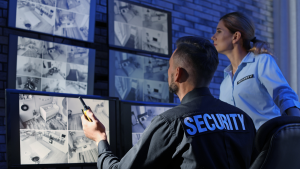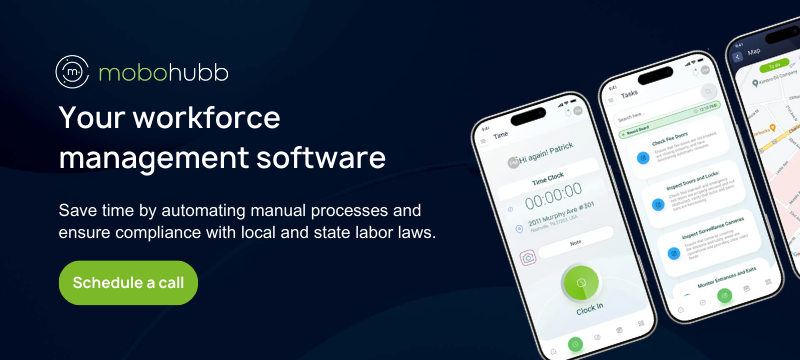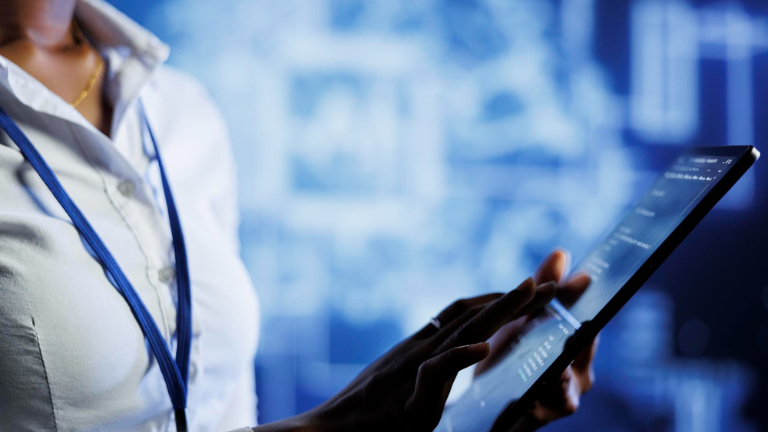As cybersecurity threats continue to evolve, the role of mobile security personnel has become increasingly crucial. Those working without desks in the security field encounter challenges, depending on mobile devices for their tasks. With the landscape progressing, the risks related to security also advance. In this blog post, we will delve into strategies for safeguarding cybersecurity for deskless mobile security personnel, highlighting the significance of protecting those who ensure our safety.
It’s essential for organizations with mobile security personnel who are not office-based to implement Mobile Device Management solutions. MDM enables administrators to remotely manage and secure devices, ensuring enforcement of security policies. It offers features like device encryption, remote wipe capabilities, and application whitelisting, providing an approach to security.
Enforce Robust Authentication Practices:
Security workers without fixed workstations are constantly on the go, using devices for communication and accessing information and real-time updates. However, this enhanced mobility brings about increased cybersecurity threats. Malicious actors target mobile devices through methods like phishing, malware attacks, and unauthorized access, jeopardizing data and critical systems.
A foundational measure in securing mobile security personnel involves implementing authentication practices. Employing Multi-Factor Authentication (MFA) enhances security by requiring individuals to provide multiple forms of identification before gaining access to confidential information. Reducing the risk of unauthorized access is a priority, especially in situations where credentials may be compromised.
Humans are often considered the weak link in cybersecurity. Conducting security training and awareness programs for mobile security personnel is crucial for fostering a culture of security awareness. Training should include topics like identifying phishing attempts, practicing safe browsing habits, and understanding the significance of software updates.

Secure Communication Channels:
Communication plays a crucial role in the security sector’s operations. Prioritizing communication channels such as encrypted messaging apps and virtual private networks (VPNs) is essential. These tools ensure that confidential information remains secure and protected from interception by malicious entities.
Deskless mobile security personnel serve as the frontline defense against threats. Continuous monitoring systems enable organizations to promptly detect and respond to security incidents in time. By setting up automated alerts and having an incident response plan in place, they can effectively reduce the impact of security breaches and minimize operational disruptions.
Conducting routine security audits:
Assessments are essential for organizations to stay proactive against evolving cyber threats. This involves assessing the efficiency of existing security measures, identifying vulnerabilities, and implementing updates. Periodic penetration testing can simulate real-world cyber attacks, allowing organizations to address weaknesses proactively.
Robust endpoint security solutions:
These solutions are crucial for ensuring the safety of devices used by security personnel. They should incorporate antivirus software, firewall protection, and real-time threat detection to shield against malware and other malicious activities that could compromise device integrity.
In conclusion, safeguarding the cybersecurity of mobile security personnel presents a challenge that necessitates a holistic approach. Through the implementation of authentication practices, utilization of Mobile Device Management (MDM) solutions, provision of training sessions, securing communication channels, maintaining vigilant monitoring procedures, and deploying effective endpoint security solutions, organizations can significantly bolster the security stance of their mobile security workforce.
As digital landscapes evolve continuously, it is imperative for organizations in the security sector to adapt their cybersecurity strategies. By placing an emphasis on safeguarding the security of workers without desks, we are not only protecting important information but also boosting the strength and determination of those on the front lines who are essential for keeping us safe and secure. In today’s world that relies on technology, these approaches are essential for strengthening our frontline defense against the increasing number of cyber risks.[/vc_column_text][/vc_column][vc_column][/vc_column][/vc_row]










